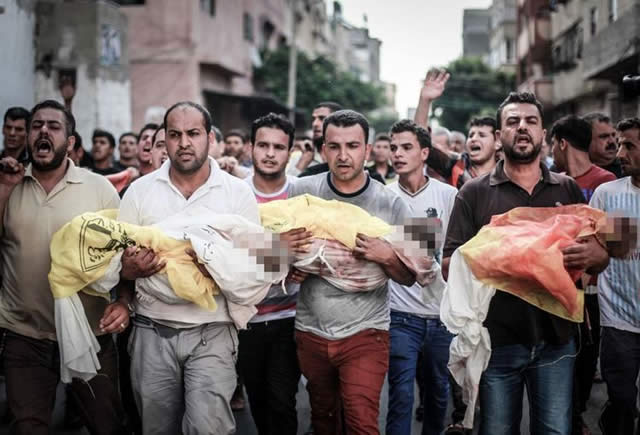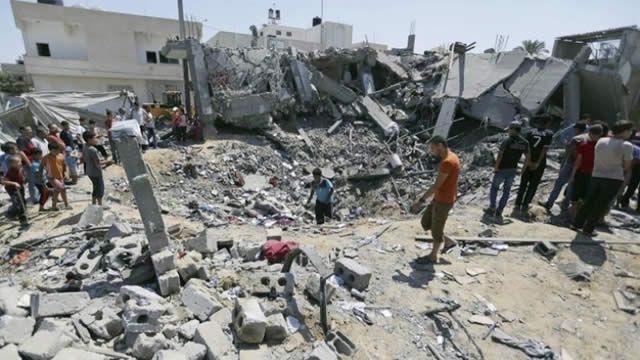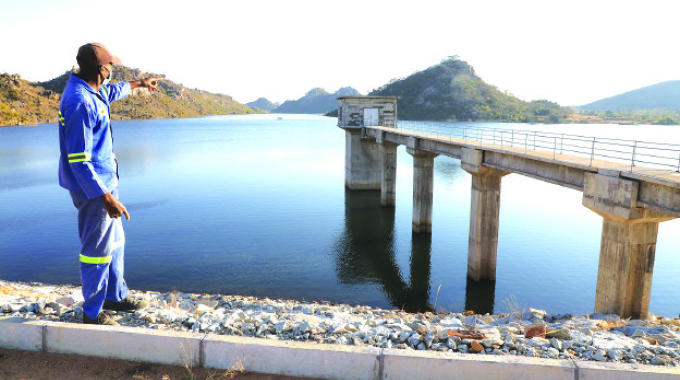Gaza offensive: The outrage, double standards


Israel has been accused of waging war on the children of Gaza after it emerged that over a quarter of the dead are under 18
Hildegarde The Arena
BRITISH Member of Parliament David Ward is under fire for saying that if he were a resident of the besieged Gaza Strip where a deadly Israeli offensive is in its second week, he would fire rockets into Israel. The Liberal Democrat MP sent a message on his Twitter account on Tuesday saying, “The big question is —if I lived in Gaza would I fire a rocket? — probably yes.”
The remarks were viewed as anti-Israel, but as the death toll continues to rise and thousands of innocent civilians are injured and displaced, how should Israel’s offensive against the Palestinian people, children and women included be viewed from an objective standpoint?
When thousands of people around the globe demonstrate against the appalling and senseless killings, which have also resulted in some Israeli soldiers and citizens being killed, should we continue to buy into the propaganda being peddled by some Western media outlets?
When both the US and European airlines were forced to cancel flights to Israel, should the offensive continue to be handled with kid gloves.
When the UN Human Rights Council chief Navi Pillay told an emergency session on the Gaza crisis on yesterday that: “There seems to be a strong possibility that international law has been violated (by Israel), in a manner that could amount to war crimes”, is this also an anti-Israeli statement considering that the session was attended by Arab and other Islamic states?
This is not the first time this writer is writing about the Gaza-Israeli crisis. On January 5, 2009 I did a piece, “Gaza exposes Barack Obama”. Going through the article, I realised how very little has changed, even as President Obama is now serving his second term.
Zimbabweans have also let down the Palestinian people. The reaction to this bloody conflict since 2009 should make us realise that we are part of the community of nations.
Below is the abridged version of that 2009 piece, which shows that the so-called international community has failed the Palestinian people:
“Gaza is burning, creating one of the most horrific humanitarian catastrophes in the Middle East. Palestinians accuse the United States of supporting the current Israeli aggression on Gaza and the massacre of thousands of innocent civilians, while the Israelis argue that they will only stop shelling Gaza when they have incapacitated Hamas’ ability to attack southern Israel with missiles.
Whichever way one looks at it, US president-elect Barack Obama’s loud silence raised eyebrows the world over since the international community which is still euphoric about his election hoped that he would take the lead in order to avert further escalation of hostilities.
Observers also wondered about Obama’s silence when human rights groups accused Israel of using chemical weapons against the Palestinian people. The chilling descriptions of the intensity of the injuries and the deaths made by some Norwegian medical doctors should have signalled immediate response from Obama since the world already sympathises with him for inheriting some of the worst conflicts of the 21st century.
These horrific accounts made some wonder why Obama was silent for so long, if change is truly his mantra, for Israel bombarded Gaza on December 27, 2008.
Where then do we draw the line especially when dealing with a long standing crisis whose magnitude has such a bearing on ordinary people’s well being, peace and security not only in the Middle East?
However, last Sunday president-elect Barack Obama finally broke his silence on the Gaza crisis when he spoke on ABC News. The much awaited policy announcement was made just over a week away from his historic inauguration as the United State of America’s first black president.
In the interview, Obama also admitted that civilian casualties in Gaza were “heartbreaking”, and promised to work swiftly on the issue (from day one), in order to avert further hardships and deaths.
Obama did so under mounting international pressure for him to speak out, and also act immediately and decisively in order to halt Israel’s continued bombardment of Gaza, which has resulted in close to a thousand deaths (at the time of writing), with a third of the deaths being those of women and children, while there were only thirteen deaths on the Israeli side.
He also broke his silence barely two days after the United States was the only UN Security council member to abstain from voting on a UNSC resolution that would have resulted in the implementation of a durable ceasefire by the warring parties.
To refuse to speak on Gaza tarnished the in-coming US administration’s credibility since there is every indication that Israel’s actions against Gaza are being carried out with the blessings of the outgoing Bush administration.
The significance of Obama’s position on the Gaza crisis is apparent in international headlines before and after he finally spoke:
- Is Gaza Obama’s first big test?
- Obama: ready on Middle East from day one
- Obama, please stay out of Gaza quagmire
- Politics, diplomacy behind Obama’s Gaza silence
- Obama refrains from detailed comment on Gaza conflict
- Obama has “plenty” to say on Gaza as Palestinian death toll hits 600
- Nothing good to say, Obama mum on Gaza
- Obama vows to focus on Gaza and Iran from start
- Obama vows to tackle Middle East “on day one”
- Obama determined to bring peace to Middle east
- Obama: “much more determined: to break Middle east deadlock
- Civilian causalities in Gaza “heartbreaking”: Obama.
Just like Obama’s silence, it has also been equally perturbing that progressive people in Zimbabwe have kept their silence on the issue, except for a few who have kept the fire burning in the media, prompting one writer to poignantly ask, “Where have Zimbabwe’s revolutionaries gone? Why do we expect support from other progressive nations, when we cannot do the same?”
It is true because the firebrands of the eighties and early nineties who always expressed solidarity with the Palestinian people and other oppressed people the world over faded with the passing on of Chairman Yasser Arafat, and the reassignment of Palestine’s longest serving Dean of the diplomatic corps, Cde Ali Halimeh.”
Today, these headlines have not changed. At the time of going to print, the US Secretary of State John Kerry was pushing for a cessation of hostilities between the two sides.
Is it too little, too late considering that either side is digging in? Israeli Prime Minister Benjamin Netanyahu, is quoted by one website as saying that Israel has no choice but to fight: “I explained to them the impossible situation the state of Israel was facing and our need to defend our people.
Since then, through constant, methodical diplomatic and media activity, we have been creating the international space — which is not self-evident — so that we can take systematic and strong action against this murderous terrorist organisation and its terrorist partners.”
Hamas on its part wants the siege on Gaza lifted as one of the conditions to a truce. Its leader Ismail Haniya told the media recently that the Palestinians “cannot go backwards, to a slow death.”
After this bombardment what will be left of the Gaza Strip and the Palestinian people’s humanity, dignity and self determination? This time around, will President Obama’s policy on Gaza see him writing a positive narrative?






Comments